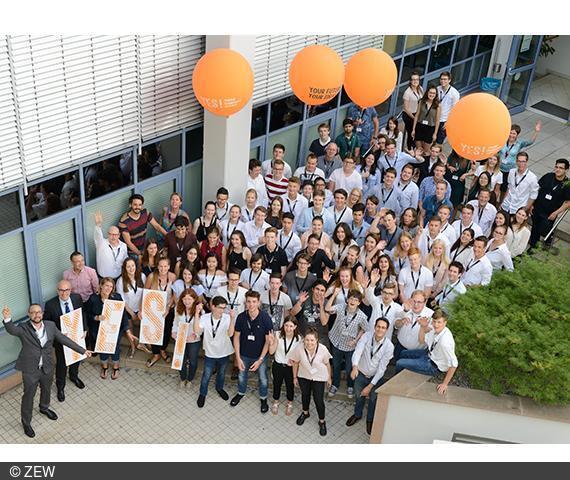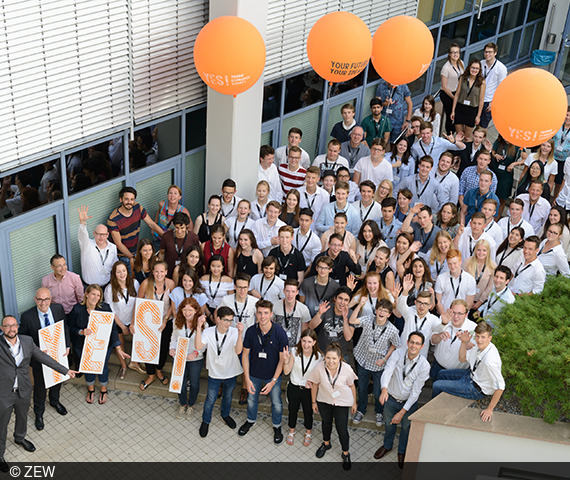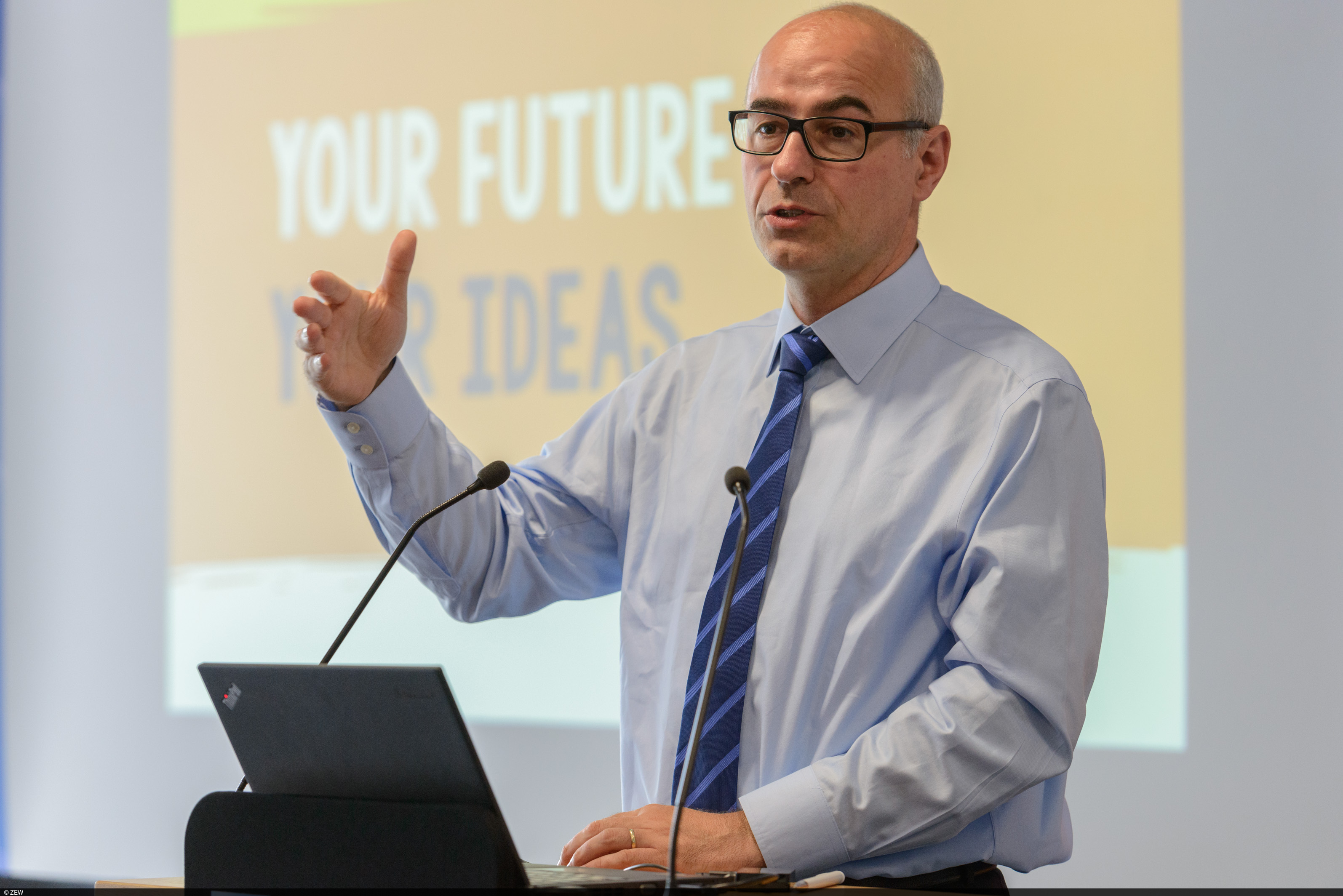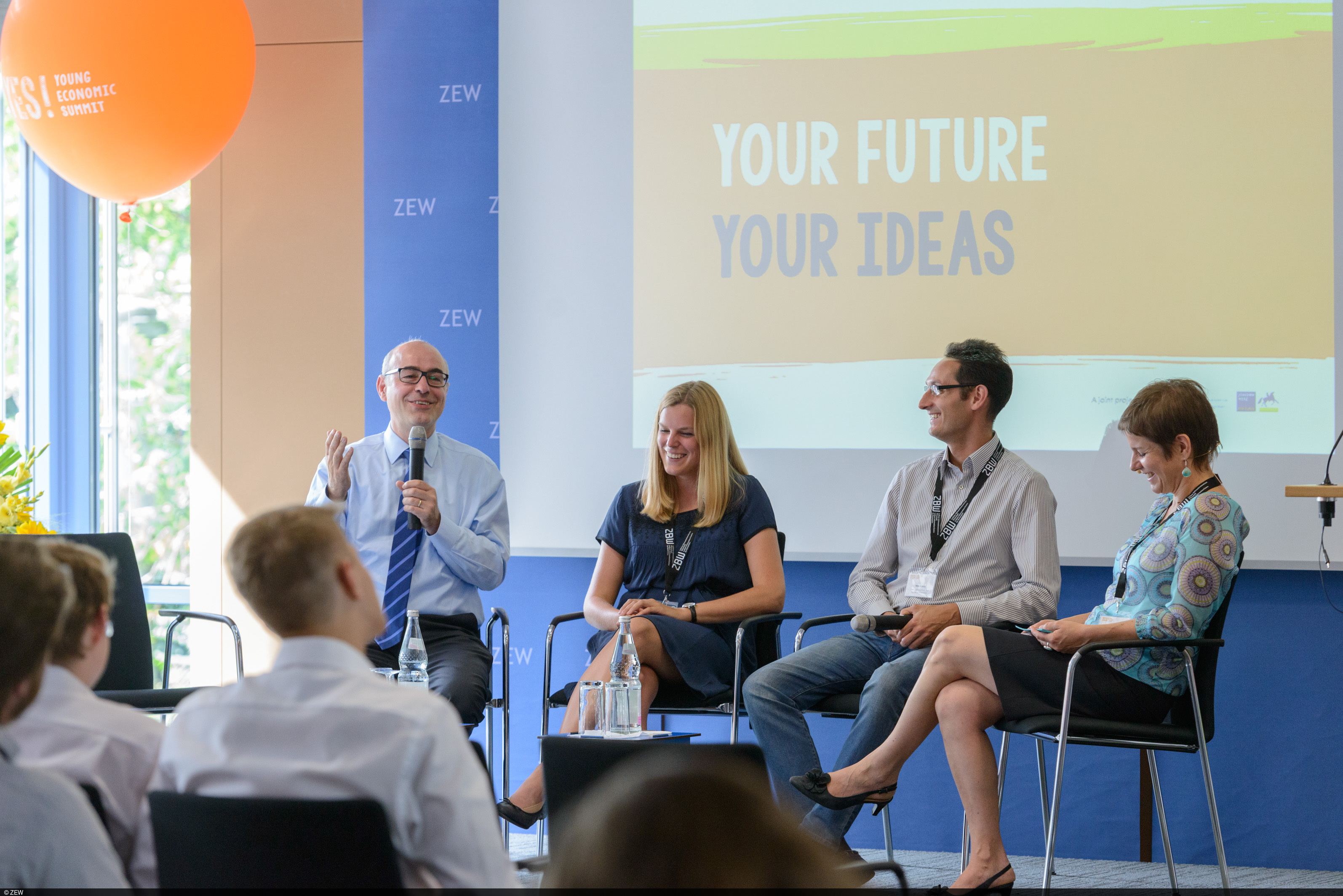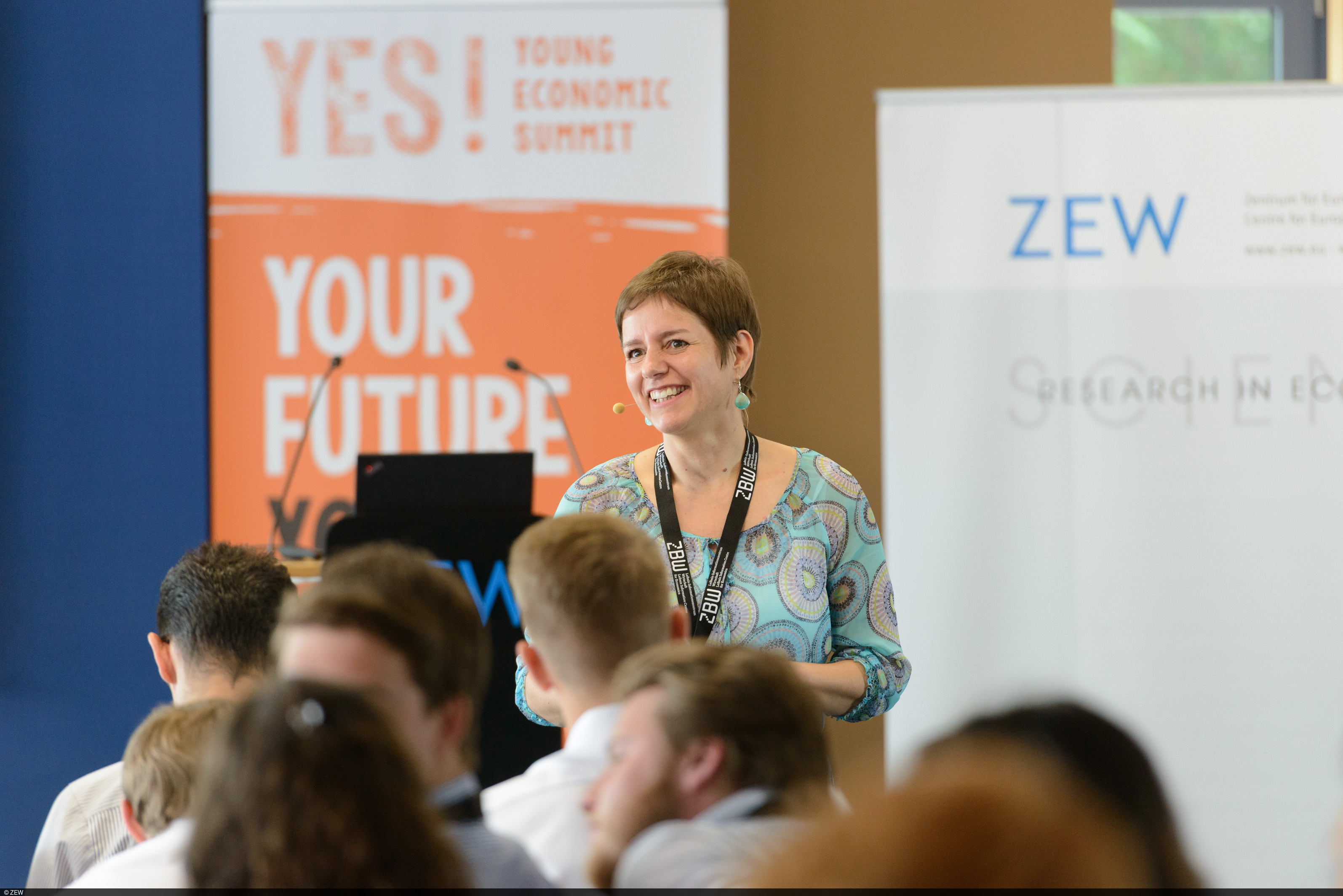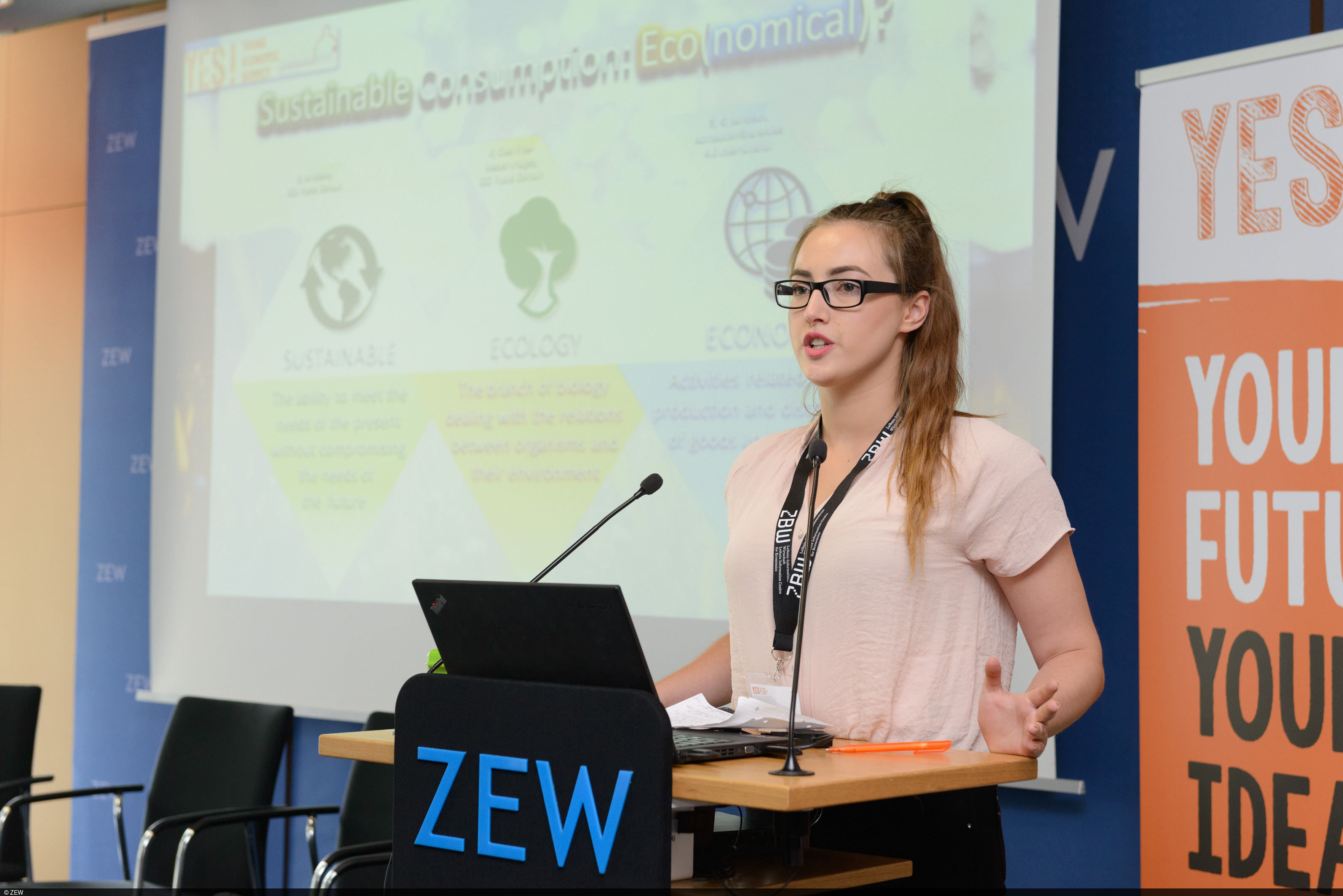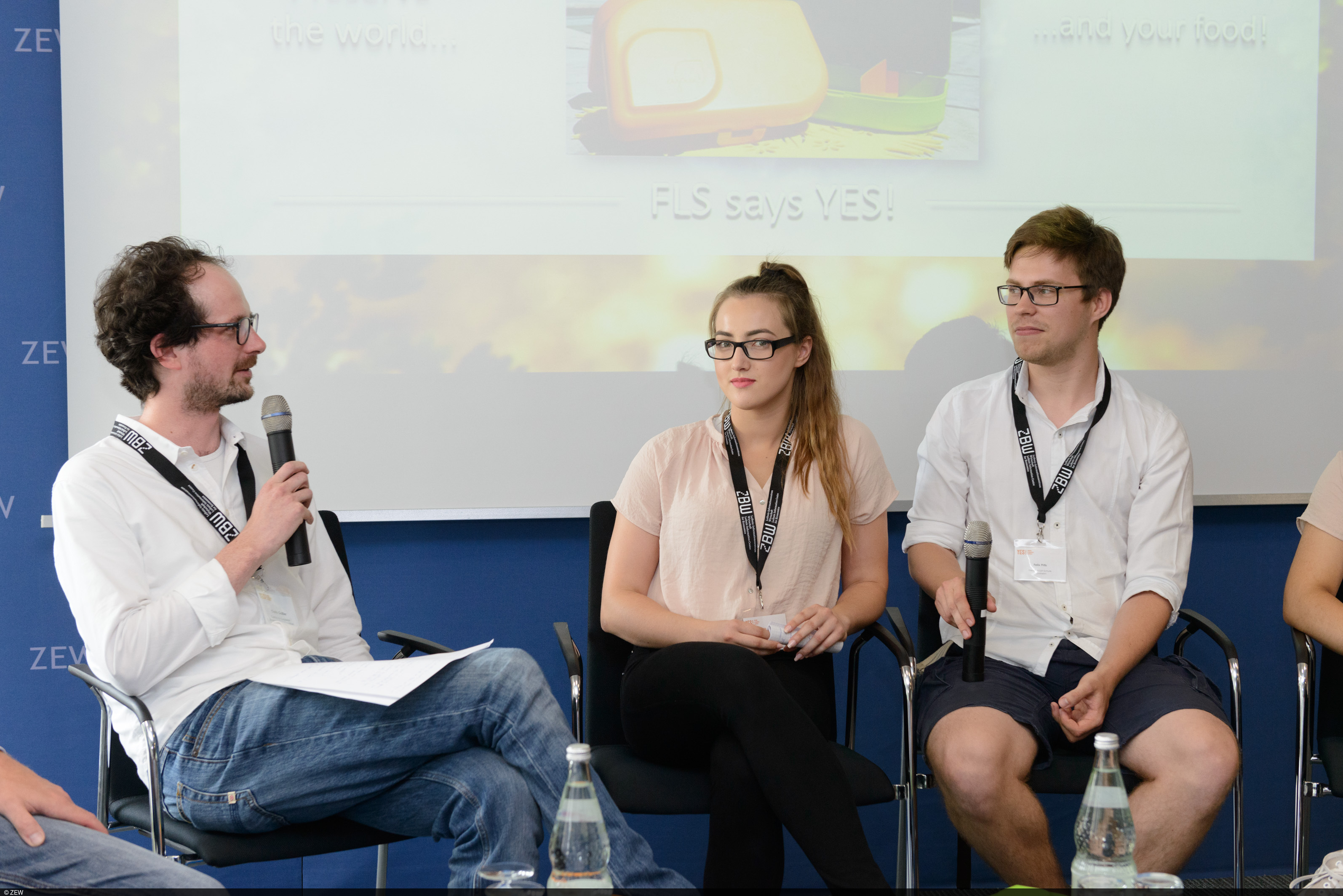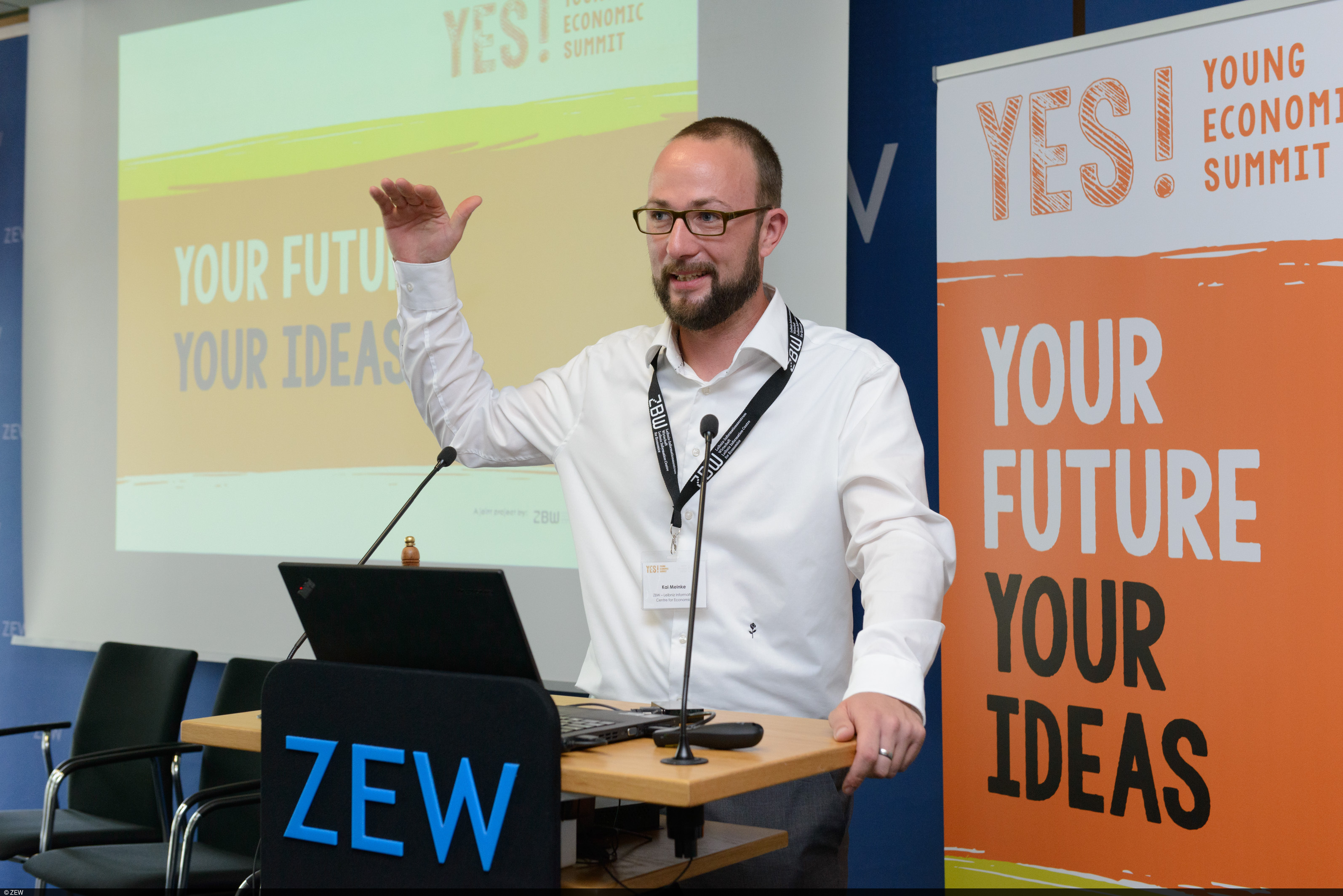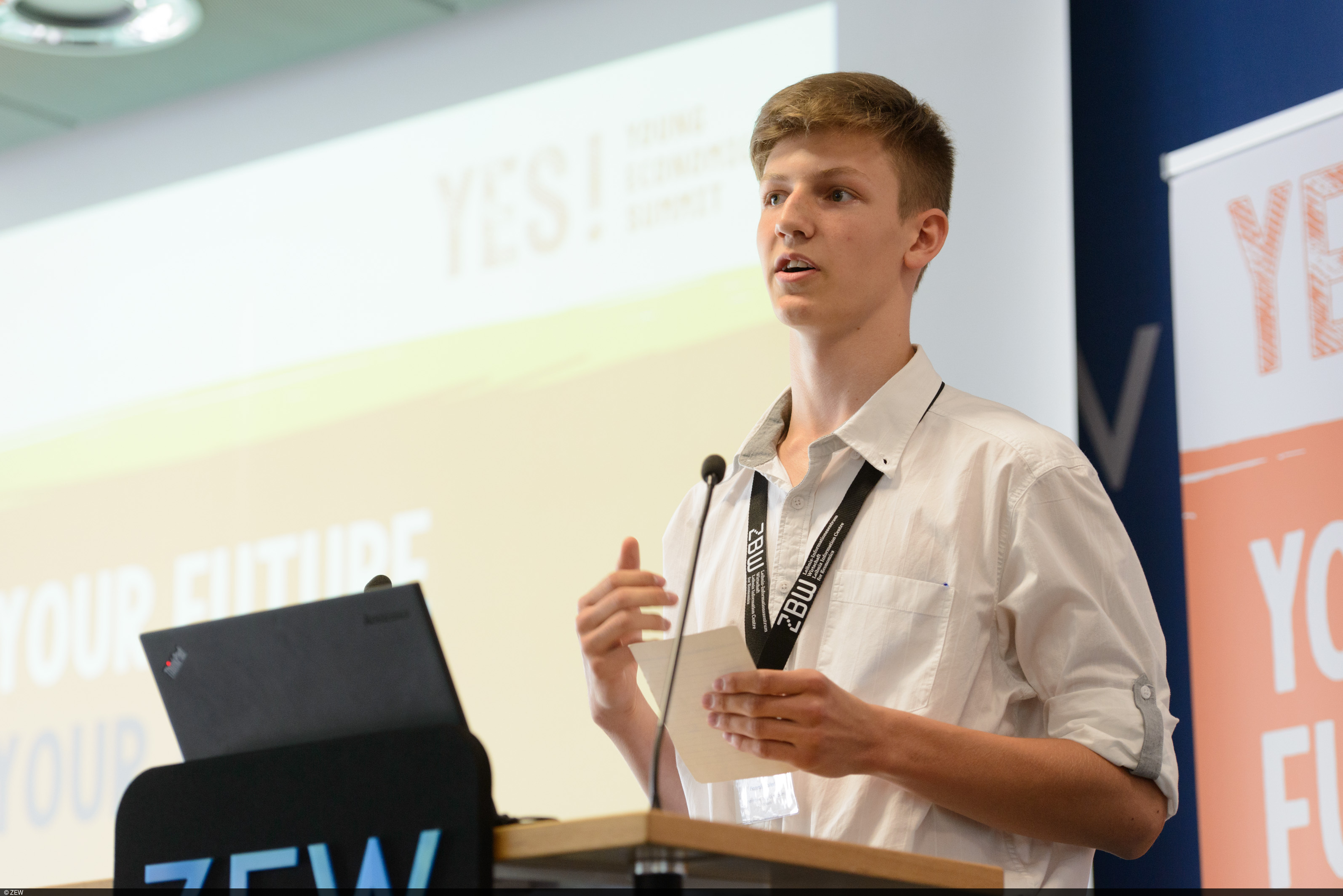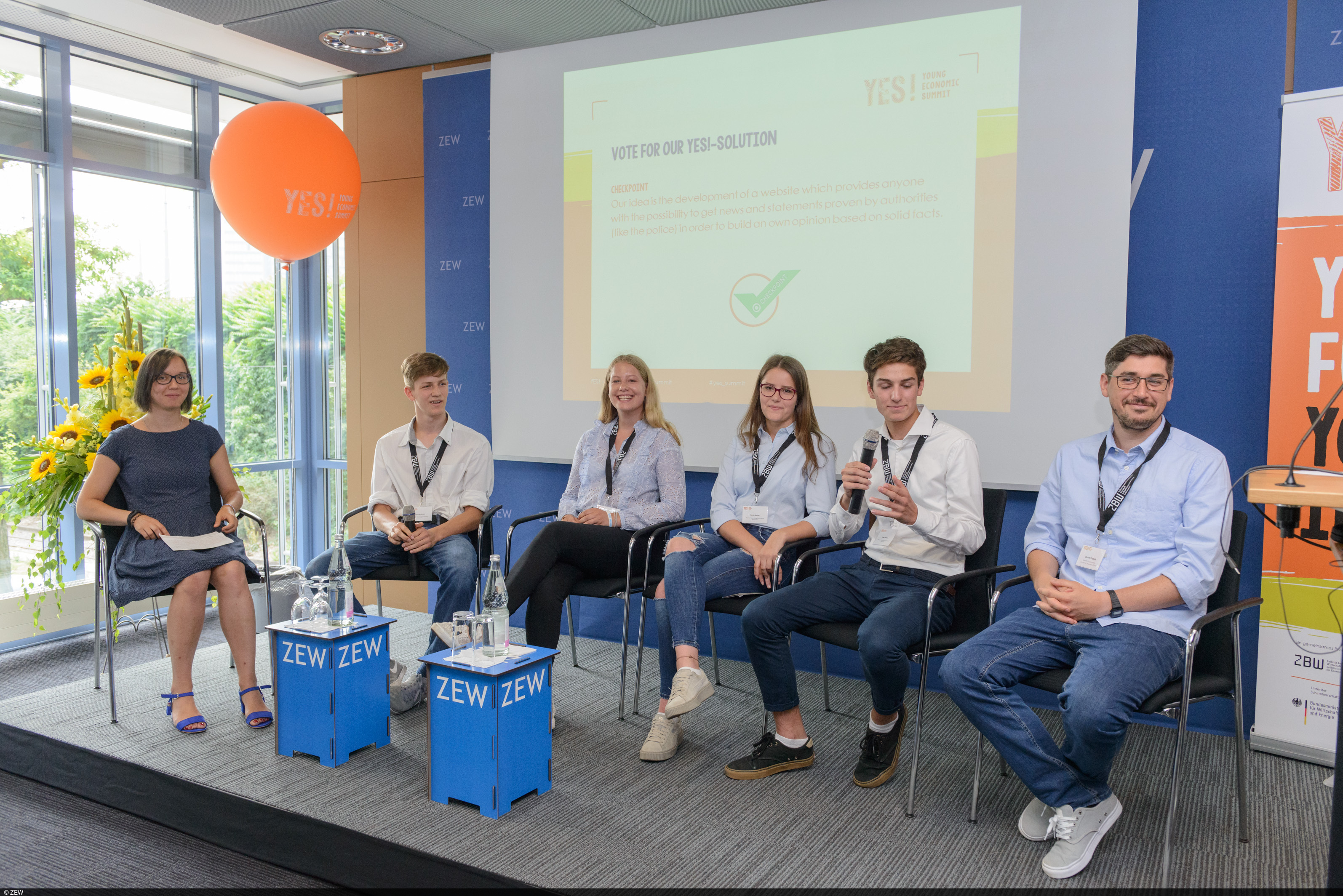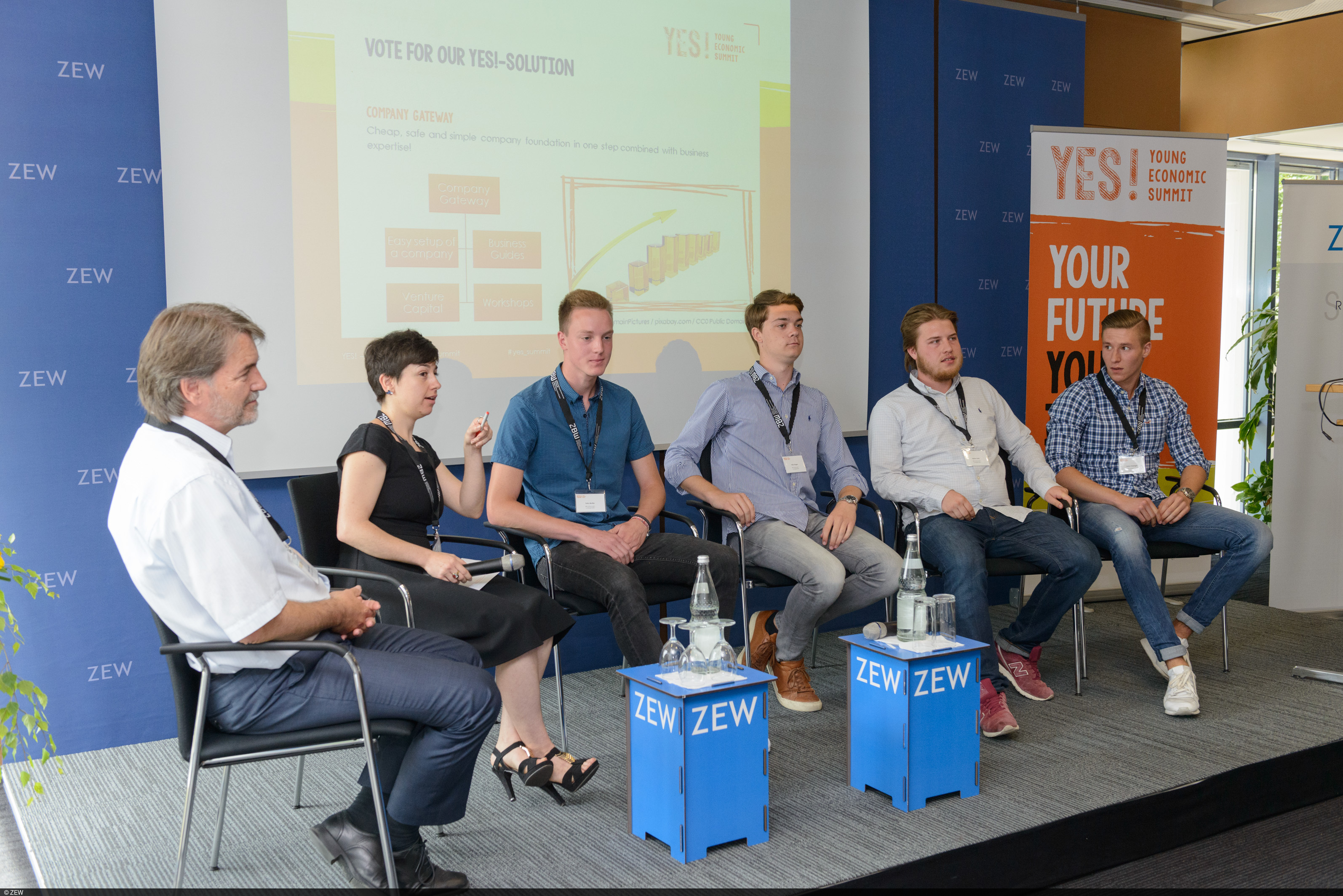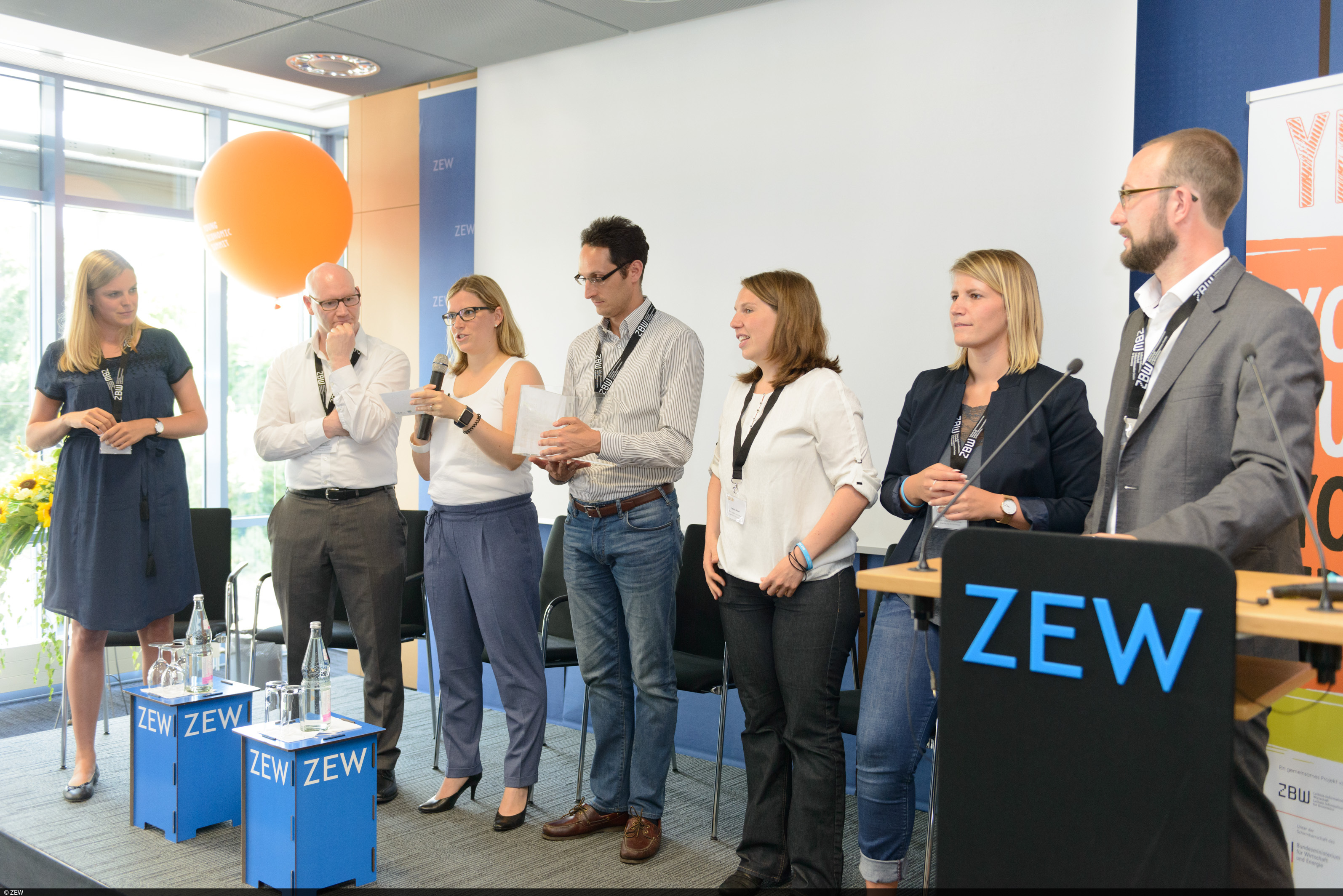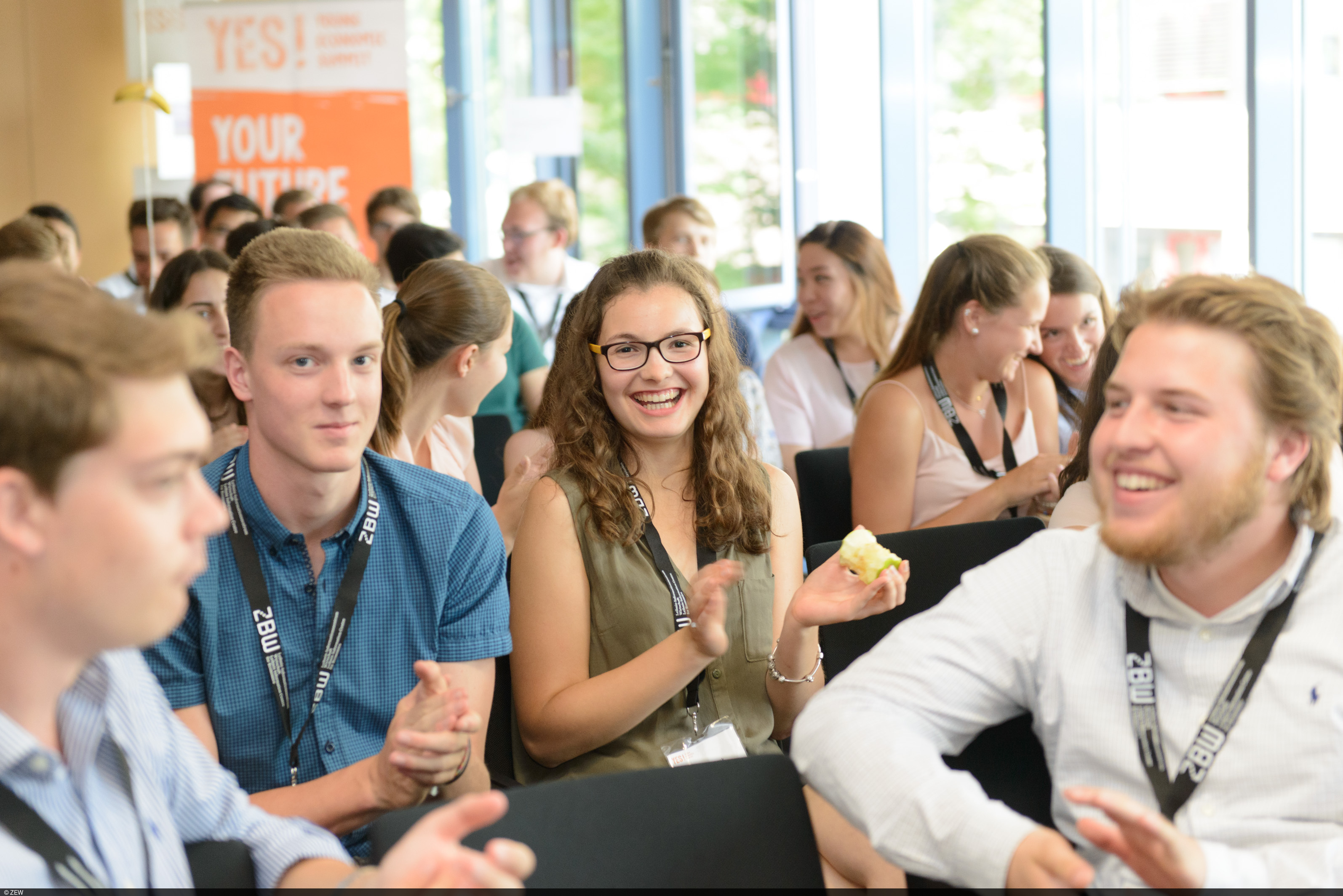High School Teams Compete at Regional YES! Qualification at ZEW
EventsYour Economy, Your Governance, Your Society, Your Environment – these were the topics up for discussion at the Southwest regional qualification round of the Young Economic Summit (YES!), a nationwide competition for high school students. The event, which took place on 23 June 2017, was hosted by the Centre for European Economic Research (ZEW) in Mannheim. The students presented their ideas for how to solve the most pressing global economic issues and had the opportunity to discuss them with experts in the field of economics.
Since February, a total of eight high school teams from the Southwest region, with the support of ZEW researchers, had been working on their solutions to some of the most significant economic, social, environmental and political challenges of our time. At the qualification round, the teams finally had the chance to compete against each other, presenting their ideas in English and then debating them with experienced economists. Following the kick-off event back in February, the regional qualification was the second YES! event to be held in Mannheim this year. ZEW is a YES! research partner and serves as a mentor to the teams from the Southwest region. ZEW researchers have been using their expertise to assist the participating teams in coming up with their ideas.Welcoming the around 100 students from schools in Baden-Württemberg, Hesse, Rhineland-Palatinate and Saarland to ZEW for the event, ZEW President Professor Achim Wambach said: “The best ideas often come from the youngest researchers. It is wonderful to see you all here today. You are the future, so we are eager to hear what you have to say.”
Give them a choice, give them a voice
How can we find our way through the flood of information coming at us on the internet? This was the question tackled by the YES! team from the Werner-Heisenberg-Gymnasium in Weinheim as part of their project on the topic “Artificial Intelligence and the Digital Economy”. Their approach included the development of a fact-checker called “Checkpoint prove the truth”. Sarah Weizer presented this idea with the rest of her team mates and underlined the relevance of the topic: “We all spend so much time online and are bombarded with an incredible amount of information. Unfortunately, not all of it is credible or true. That’s why it is important to question what we are reading and form our own, reasoned opinion. That was how we came up with the idea for Checkpoint.”
Experts impressed by high school teams
It was not only the young participants who watched the presentations with great interest – the experts in attendance were also impressed by the innovative ideas being presented by the students. Kai Menke, project manager of the YES! summit, was full of praise for the young teams: “The teams have really wowed us today – their innovative ideas, their excellent English skills, as well as their courage in speaking in front of so many people have exceeded our expectations yet again.”
After the presentations and discussions with the experts the young participants got to vote for the best solutions; seven groups could advance to the final, which will be held in Kiel in September. The losing team from the Albert-Einstein-Gymnasium in Ulm was, however, also commended for their ideas and hard work and, as a consolation prize, was given the opportunity to take part in the G20 summit in Hamburg in July 2017. At the summit, they will have the chance to present their ideas on modern taxation policy to German Federal Finance Minister Wolfgang Schäuble. A second qualification round will take place on 6 July 2017 at the ZWB – Leibniz Information Centre for Economics in Kiel where high school teams from Northern Germany will compete for a place in the final. At the YES! – Young Economic Summit final on 28 and 29 September the teams from the Southwest will then go head to head with the North German teams.
About YES!
The YES! – Young Economic Summitis one of the biggest school competitions aimed at getting young people to engage with economic and social issues. High school students come up with their own solutions to global economic, ecological and social problems and present them as part of a conference for other students – the YES! – Young Economic Summit, which is held in English. Through discussions with leading economists and other students, they focus on global connections and develop their own innovative solutions. There is a vote to determine the best solutions. The winning solutions are awarded a prize and publicly forwarded to those in a position to investigate how they might be put into practice.
In the run-up to YES! all students participating in the project receive continued support and guidance in topics such as how to carry out research, give presentations and engage with the media. YES! included these topics following the recommendation from the Standing Conference of the Ministers of Education and Cultural Affairs that school students should be taught how to exercise critical judgement when using media applications. The “YES! – Young Economic Summit” falls under the patronage of the Federal Minister of Economic Affairs, Brigitte Zypries, and is a joint project by theZBW – Leibniz Information Centre for Economics and the Joachim Herz Stiftung.The Leibniz Association’s scientific partner institutions are the Centre for European Economic Research (ZEW) in Mannheim, the Kiel Institute for the World Economy (IfW) and the GIGA German Institute of Global and Area Studies in Hamburg.
